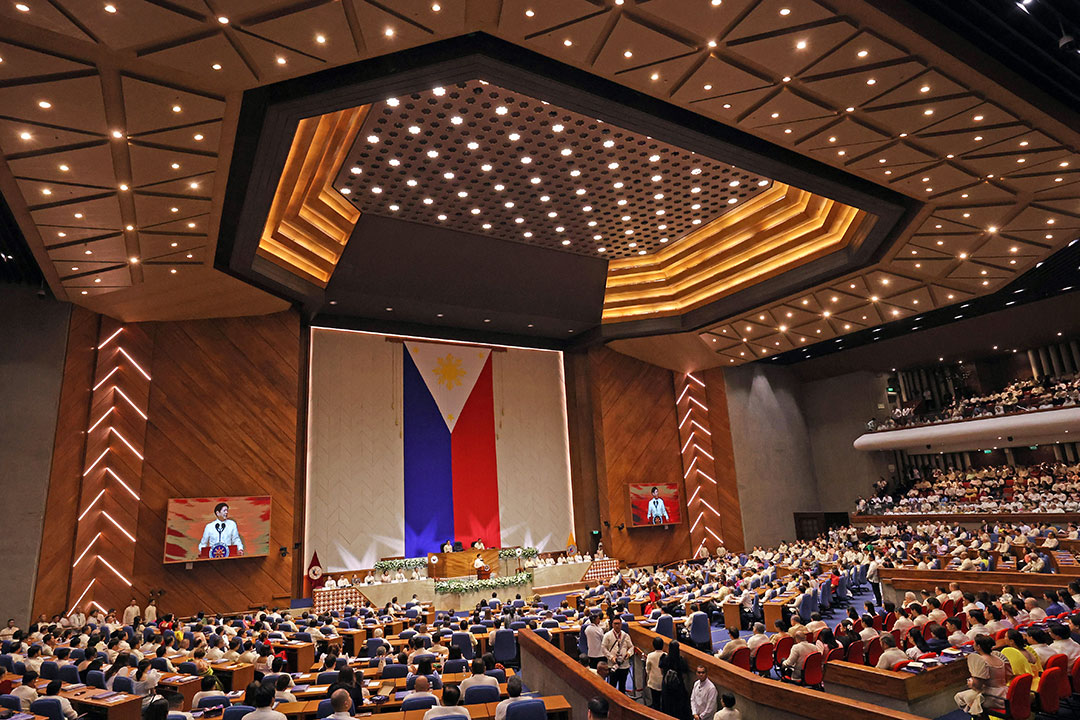House open to cutting standby fund but caution needed, lawmaker says

THE House of Representatives is open to cutting unprogrammed appropriations, a lawmaker said on Monday, but warned that some projects still require standby funding despite calls for proposed reductions.
In a media briefing, Nueva Ecija Rep. Mikaela Angela B. Suansing said she is “very open” to discussions on reducing allocations for unprogrammed appropriations, adding that the House is not firmly opposed to revisiting standby funding once the budget bill enters bicameral conference deliberations.
But she emphasized the need to preserve standby allocations for foreign-assisted projects and the military’s modernization program, saying that abrupt cuts to their spending could jeopardize the programs that rely on flexible funds.
“I’m very open to discussing with the Senate how we can potentially rationalize the contents of unprogrammed appropriations,” said Ms. Suansing, who heads the House Appropriations Committee. “But as you can see, there are other programs that really need to be retained.”
“The House is not closed to the possibility that the entire P243-billion [unprogrammed] allocation may not be retained.”
Senate President Vicente “Tito” C. Sotto III said in early October that the chamber would push to remove all unprogrammed funds from the proposed P6.793-trillion national budget for 2026, adding that he had discussed the proposal with Senator Sherwin T. Gatchalian, who heads the Senate Finance Committee.
The House last week approved its version of the 2026 budget on final reading, reallocating around P255 billion originally earmarked for flood control projects. Congressmen also trimmed the Office of the Vice-President’s budget to P733 million and revised P35 billion in standby funds.
The spending bill must still pass second and third readings in the Senate and undergo deliberations in a joint congressional committee, where further revisions may be introduced, before it can be transmitted to the Presidential Palace for signing.
“Rather than zeroing out the particular items under unprogrammed appropriations, one option is to explore reducing them,” she said.
She said some P133 billion needs to be retained for foreign assisted projects. The funding could not be placed under assured funding due to strict requirements in securing guaranteed allocations.
“Because during the budget preparation stage, the requirements needed for these projects to be included in programmed appropriations were not met,” she said.
There must be a “perfected contract” between the Philippines and foreign institutions for the project, and it must be approved by the socioeconomic planning board first before being included in the budget bill.
She added a portion of the P50-billion funding should also be retained for military modernization.
“Our armed forces really need additional support for equipment.”
Ms. Suansing said the House adopted most of the unprogrammed appropriations because they are “necessary funds” for next year, noting that their implementation depends on the availability of additional government revenues.
Congressmen slashed unprogrammed appropriations to P243 billion from the initially proposed P249 billion under the National Expenditure Program.
Also on Monday, Ms. Suansing said the House ensured the proposed 2026 budget would be free of “pork barrel,” which previously allowed lawmakers to fund projects within their districts that fell outside the national infrastructure program. — Kenneth Christiane L. Basilio



